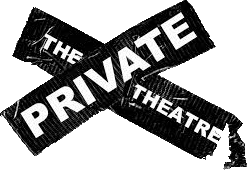Diary of War
"Diary of War" is a powerful benefit reading by Bedlam and The Private Theatre highlighting the harrowing and inspiring experiences of Ukrainians affected by the full-scale Russian invasion. The event promises to deliver resilient, firsthand accounts from Ukraine performed by an acclaimed cast of American actors.
Rooted in the Diary of War documentary podcast by Ukrainian cultural activist and a Time Magazine Next Generation Leader, Daria Kolomiec, the performance transforms real stories into a profoundly moving theatrical experience. The project produced by Kolomiec captures the raw and emotional stories of Ukrainians during the full-scale Russian war in Ukraine, providing a window into the personal impacts of the ongoing invasion. Since February 2024, Kolomiec's theatrical events based on her podcast have sold out venues across New York, including the West End Theater and the Brooklyn Center for Theatre Research, raising over $60,000 for Ukrainian volunteer organizations conducting frontline medical evacuations and supporting female veterans.
Directed by Musa Gurnis, the reading will share the testimonies of seven Ukrainians whose lives were irrevocably changed by war:
Iryna Tsybukh (call sign Cheka), a film producer and a project manager in civilian life, shares her work as a combat medic in the Hospitallers volunteer battalion, evacuating soldiers in hot spots on the front line. In May 2024, she was killed during her rotation.
Olena Nikulina, the wife of Maksym Nikulin, a soldier of the Azov Regiment, describes learning about her second pregnancy while her husband was at the Azovstal factory surrounded by Russians. Since his capture, Olena has not heard from Maksym, and he has never met his son.
Denys Khrystov, a former TV host, evacuated hundreds of people and animals from the war zone; some of the towns he visited with his evacuation assignments no longer exist.
Julia Kochetova, a photojournalist who regularly works in Ukraine's most dangerous places, reports about Russian war crimes. She was awarded an Emmy in 2023 and a World Press Photo Award in 2024 for her work.
Olha Bulkina describes her work as a clown at Kyiv's Ohmatdyt, the largest children's hospital in Ukraine, struck by a Russian missile in the summer of 2024.
Marat Shevchenko is a stageman and DJ who had to flee his occupied hometown of Kupiansk on an old motorcycle with his vinyl records and ethnic embroidered shirt.
Yurii Marchenko, a Ukrainian journalist, storyteller, and editor-in-chief at Platfor.ma, a media and creative agency for social projects, tells about losing his pet pug and being unable to get timely veterinary assistance during the first weeks of the full-scale war.
The performance will feature a stellar lineup of actors:
Laila Robins ("The Walking Dead," "American Horror Stories") as Julia Kochetova;
Jason Bowen (“Mother/Android,” “Friend Zoned,” “The Play That Goes Wrong”) as Denys Khrystov;
Sarah Wharton (“Godless,” “That's Not Us”) as Iryna Tsybukh;
Ismenia Mendes (“Orange Is The New Black,” The Public Theater’s “Much Ado About Nothing”) as Olena Nikulina;
b Norwood (Netflix's "You," "Toros") as Olha Bulkina;
Jake Hart ("Person of Interest," "Shades of Blue") as Marat Shevchenko;
Carson Elrod ("The Wedding Crashers," "Peter and the Starcatcher") as Yurii Marchenko.
The evening will start at 7 PM with an exceptional performance by Teryn Kuzma – a singer and bandura player, a versatile performer of classical, contemporary, musical theater, and folk repertoire; and Ulana Pryjmak – a singer, member of the Ukrainian Village Voices folk collective, and promoter of Ukrainian folk culture.
Guests of the event will be offered to participate in a charitable auction and bid for some exclusive items, such as vintage Ukrainian vinyl record from Marat Shevchenko’s collection he fled with, book of Ukrainian wartime symbols co-written by Yurii Marchenko, a limited edition chevron designed by Iryna Tsybukh, and other memorable lots.
The upcoming performance also serves as a significant cultural and humanitarian effort, spotlighting the resilience of the Ukrainian people and supporting those who provide vital care and assistance in wartime. All funds raised from this event will be transferred to United Help Ukraine – a registered 501(c)(3) charity providing humanitarian, medical, and psychological assistance to those affected by the Russian war in Ukraine since 2014, when Russia annexed Crimea and occupied part of eastern Ukraine. UHU also raises awareness and advocates for Ukraine to remain a free, democratic, and independent nation.
As part of its medical aid program, UHU will provide supplies for Hospitallers, a Ukrainian volunteer organization that delivers crucial medical care on the battlefield, facilitates the evacuation of the wounded, and assists with their recovery. Since its inception in 2014, Hospitallers have been instrumental in evacuating over 17,000 people from combat zones and continue their essential work to this day.
If you can’t attend the reading please use this link to donate: https://www.classy.org/give/661212/#!/donation/checkout








